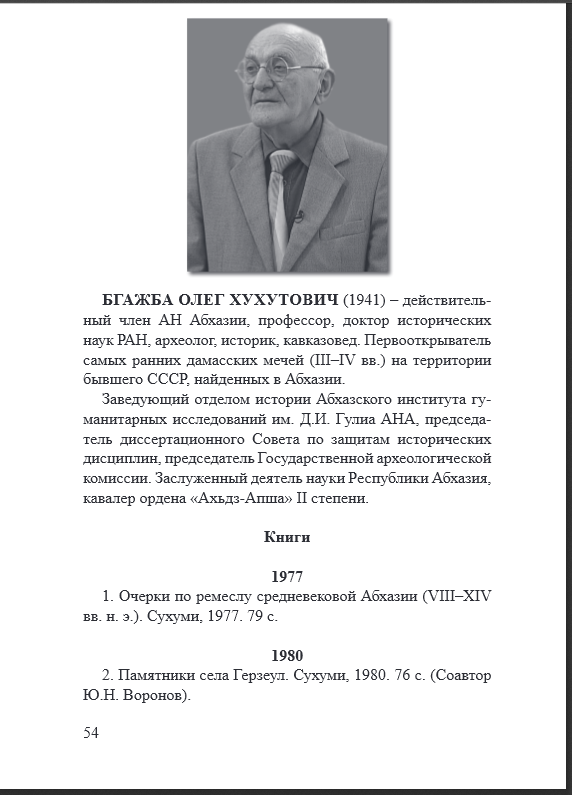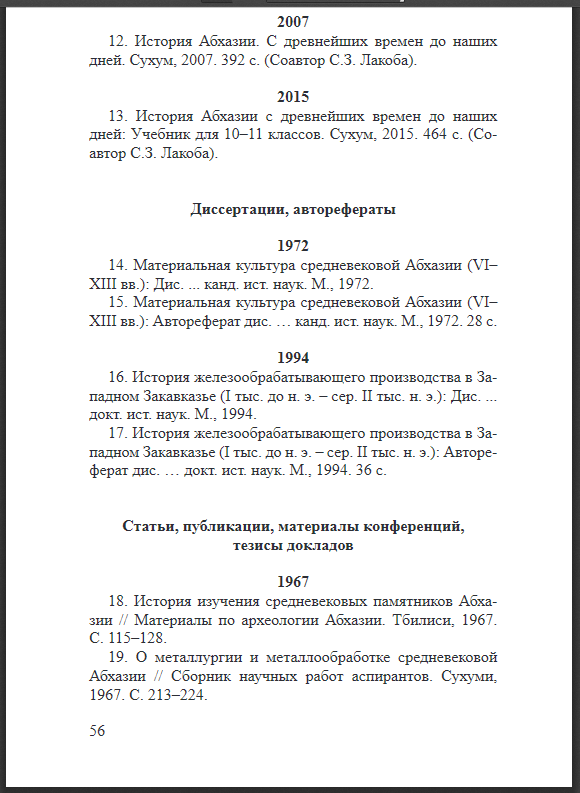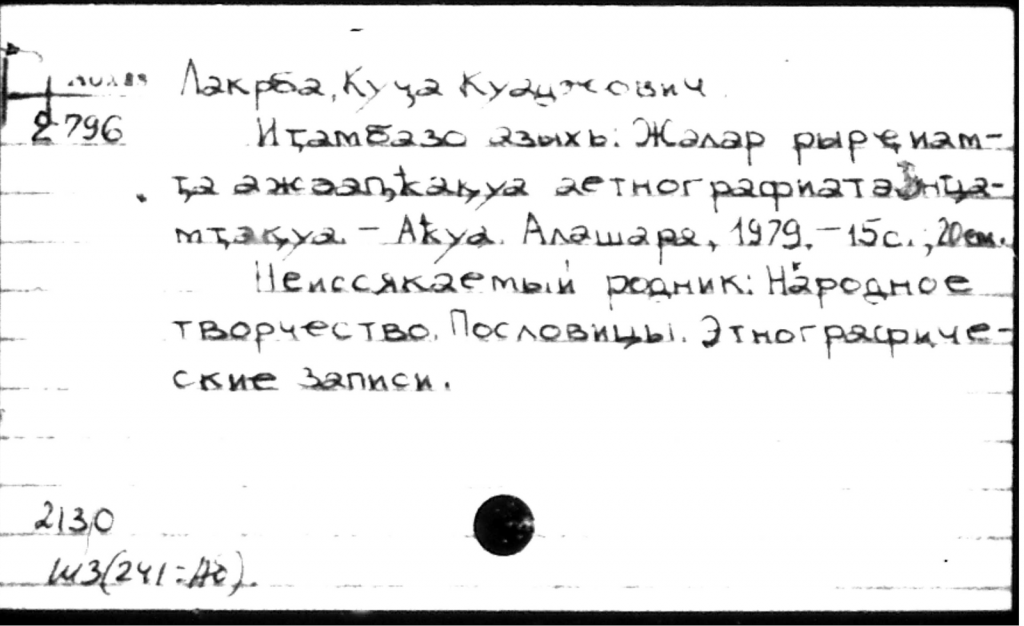Introduction
Abkhazia is a disputed territory in northwestern Georgia. In 1810, it became part of the Russian Empire. During the Soviet period, starting in 1931, it was the Abkhaz Autonomous Soviet Socialist Republic within the Georgian SSR. The capital city is Sukhumi. Its official languages are Abkhaz and Russian. Abkhaz belongs to Abkhaz-Adyghe group of languages. Abkhaz’s writing system was developed in 1862, and was based on Russian alphabet with some additional letters and diacritics. In 1928, the writing system was switched to Latin script, then again in 1935 to the Georgian alphabet, and then switched to Cyrillic in 1954. The alphabet has the following characters that do not exist in Russian: Ӷ, Ӡ, Қ, Ҟ, Ԥ, Ҭ, Ҳ, Ҵ, Ҷ, Ҽ, Ҿ, Ҩ, Џ, Ә. Abkhaz keyboards can be found online. For transliteration purposes consult the Library of Congress romanization tables for Non-Slavic languages in the Cyrillic script.
Sources: Bol’shaia Rossiiskaia Entsiklopediia, V.1., pp.49-50, Ethnologue
Below is a preliminary guide to bibliographic tools for researchers of the region available through the National Library of Abkhazia, the Abkhaz Internet Library, the National Library of Russia and some other resources.

Natsional’naia biblioteka imeni I. G. Papaskir, founded in 1921, houses a unique collection of materials about Abkhazia and its history and culture, in both Russian and Abkhaz languages. The collection is maintained under the supervision of the Abkhaz Book Chamber. One of its projects is Kalendar’ znamenatel’nykh dat. This calendar has been published annually for 15 years and includes more than 400 significant dates related to history, culture, sciences and arts in Abkhazia as well as anniversaries of famous Abkhazians. Issues (2014-2017 ) of Kalendar’ znamenatel’nykh dat are available online (in .pdf format). Below is an entry from the 2017 issue of Kalendar’ on Boris Kuftin, an archaeologist and ethnographer who studied Abkhaz archeology.
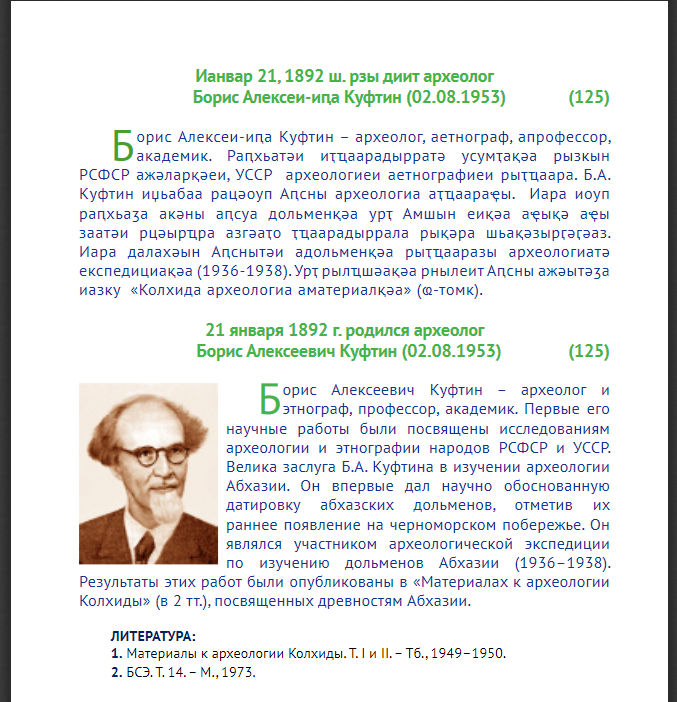
Online Catalogs
Note: The Abkhaz National Library’s online catalog works only in the physical space of the library.
Abkhazskaia internet-biblioteka is an excellent and authoritative resource, whose primary goal is to collect, preserve and make available sources about Abkhazia and by Abkhaz authors. The website has thematic and alphabetical catalogs, as well as sections about recently added titles and useful links.
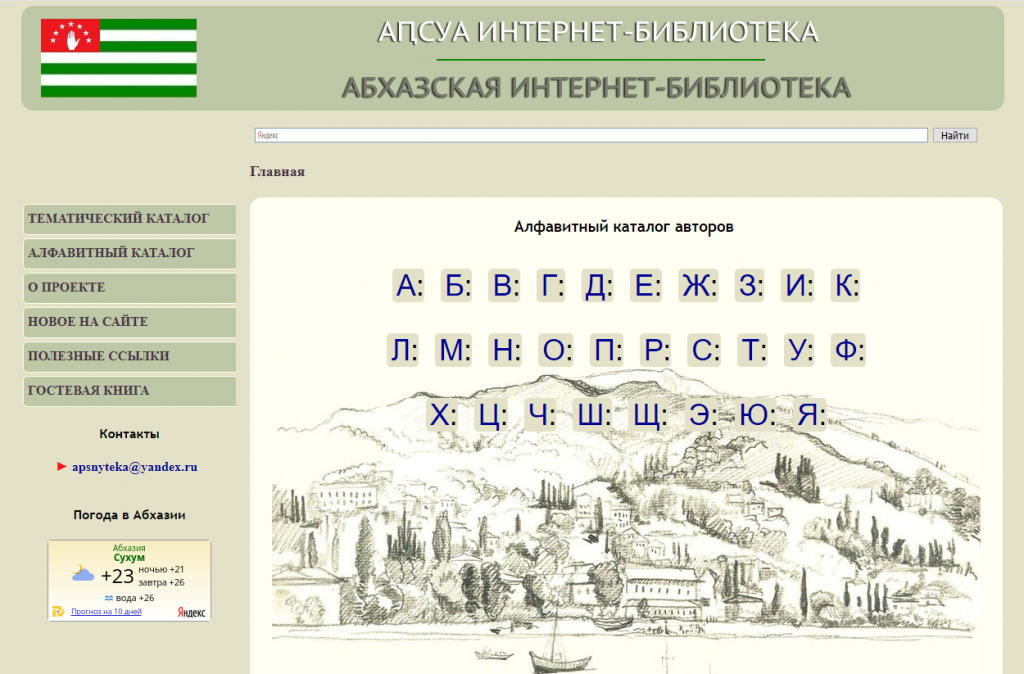
The thematic catalog page has links to downloadable resources on language, history, religion, literary studies, children and adult literature, diaries, politics, economics, law, sciences, arts, periodicals and resources for other subject areas. 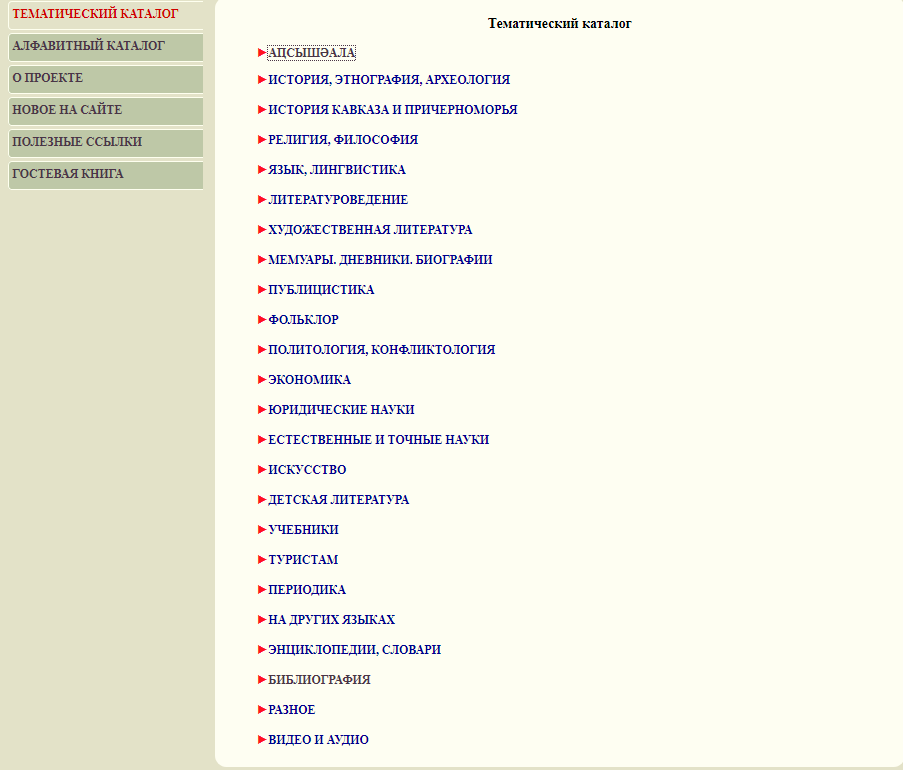
Below is an example of an extensive collection of bibliographical resources available online (mostly in .pdf).
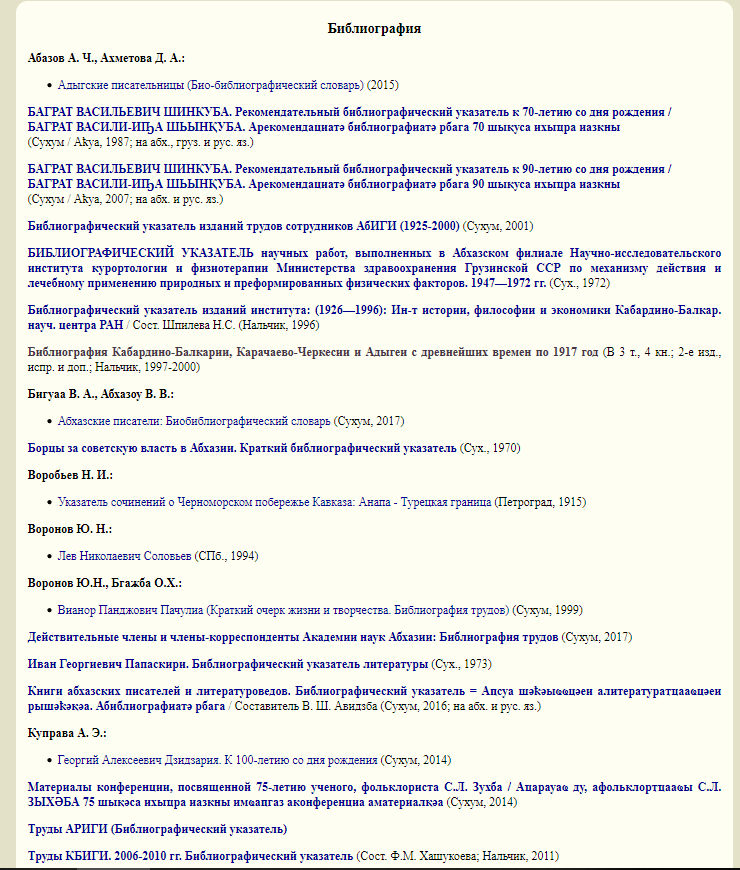
Bibliografiia Kabardino-Balkarii, Karachaevo-Cherkesii i Adygei s drevneishikh vremen po 1917 god is a downloadable three-volume set that provides bibliographic information on history, culture and agriculture of Kabardino-Balkaria. Below is an example of a content page from v.1:
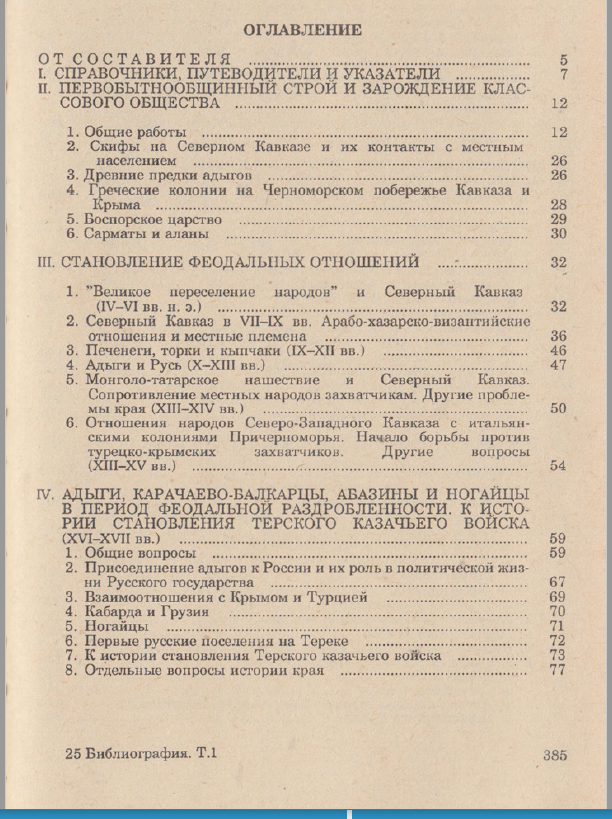
Katalog knig na iazykakh narodov RF i stran SNG
The Russian National Library has an online catalog of books in national languages of Russia and the Commonwealth of Independent States. The catalog contains records for the materials acquired by the Library after 2000, with plans to expand the database in the future to include materials before 2000. The catalog can be searched by all the standard options (author, title, subject, ISBN, etc) and by language of the document. The following search returned 22 titles in Abkhaz:
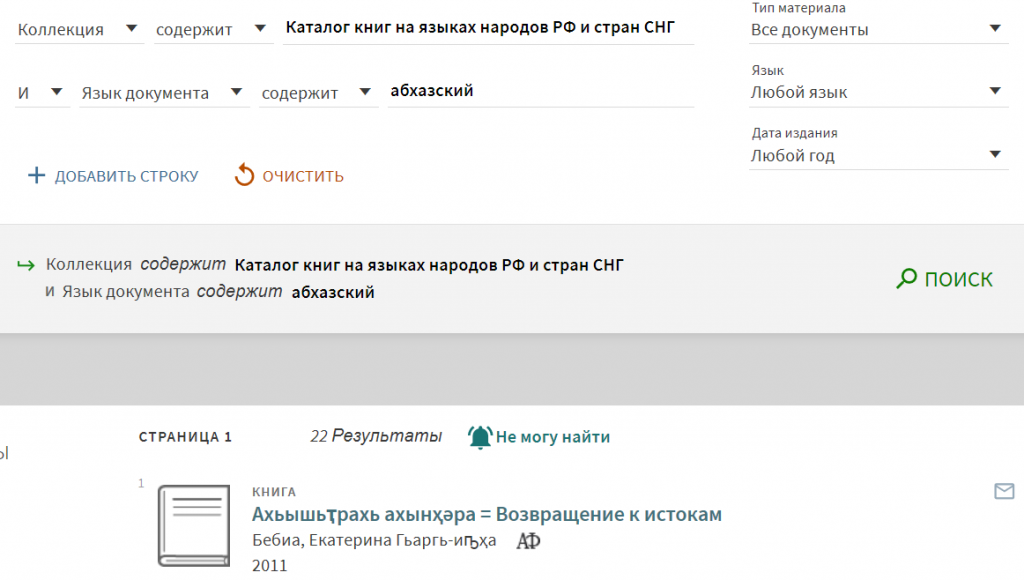
Library Catalogs
Katalog literatury na abkhazskom yazyke [microform]
Rossiĭskaia natsionalʹnaia biblioteka. Otdel literatury na natsionalʹnykh iazykakh. New York : N. Ross, 1998. U of I Library Call Number: MFICHE 016.94758 R736k International and Area Studies Library. U of I record. OCLC Accession Number: 702570094.
The Russian National Library’s Department of Literature in National Languages (also known as the Department of National Literatures) of the Russian Federation, the Commonwealth of Independent States, and the Baltic countries has reproduced catalogs of holdings in microfiche format. The imprints catalogs diffuse most of the difficulties associated with transliteration in the vernacular languages, spelling, forms of entry, and uncertainties with the entirety of the collection. Researchers can access the entire holdings for a specific language at the Russian National Library through the microfiche set; conveniently exporting selected titles via PDF scans.
The catalog of literature in Abkhaz contains holdings of all Abkhaz imprints located in the National Library of Russia. It is arranged in alphabetical order by author/title. The following scans reflect some of the Abkhaz language holdings from the catalog:
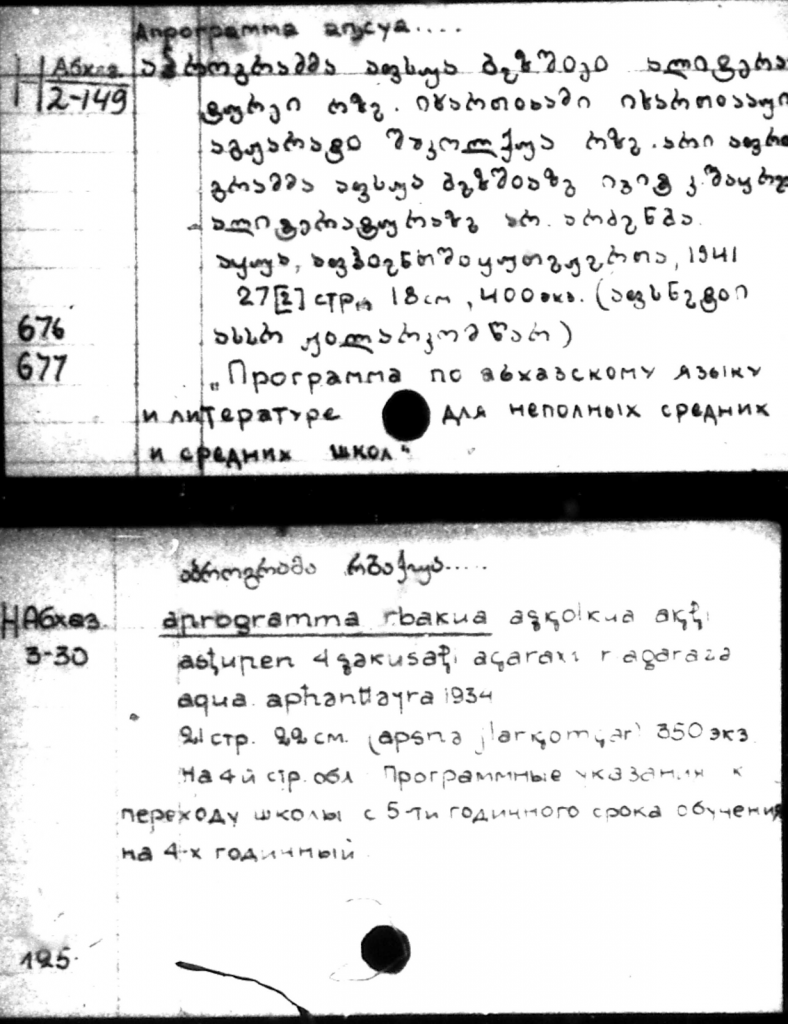
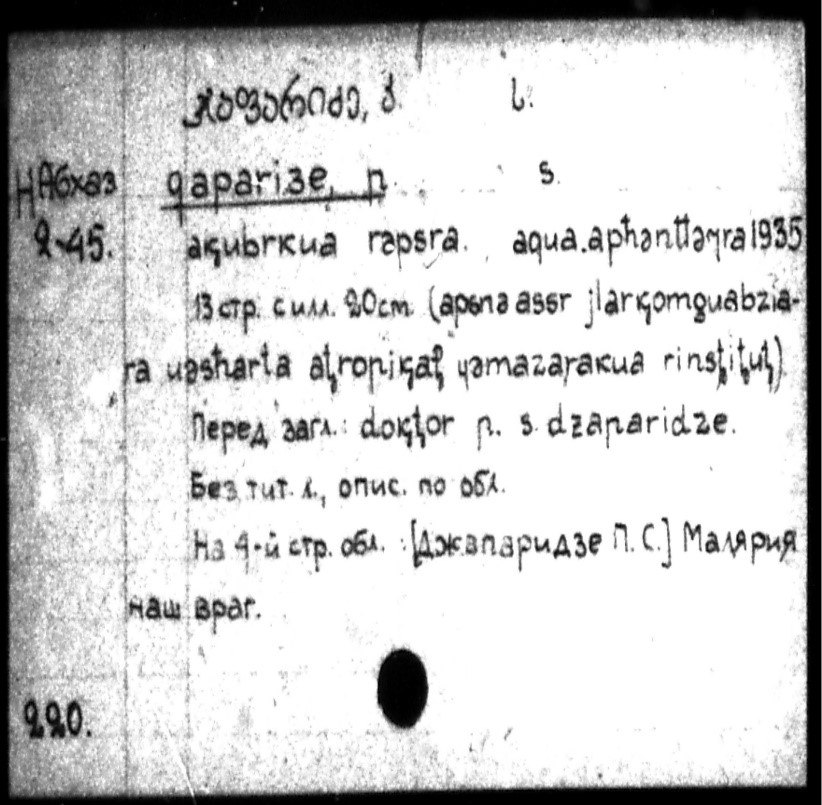
Archives
Abkhaz State Archive was created in 1929 and as of 1989, it had more than 700 collections. 95% of the collection was lost in a fire during the 1992-1993 War.

Photo by V. A. Chirikba. Source: https://abkhazworld.com/aw/conflict/694-vandals-xxth-century-adzhindzhal
Information about the archive and its history as well as some publications are available on the website Khronos. For instance, an overview of the 20th century archival materials Abkhazkii arkhiv. XX vek or archival documents from 1937-1953 Abkhaziia: dokumenty svidetel’stvuiut (all of which were lost in the fire).
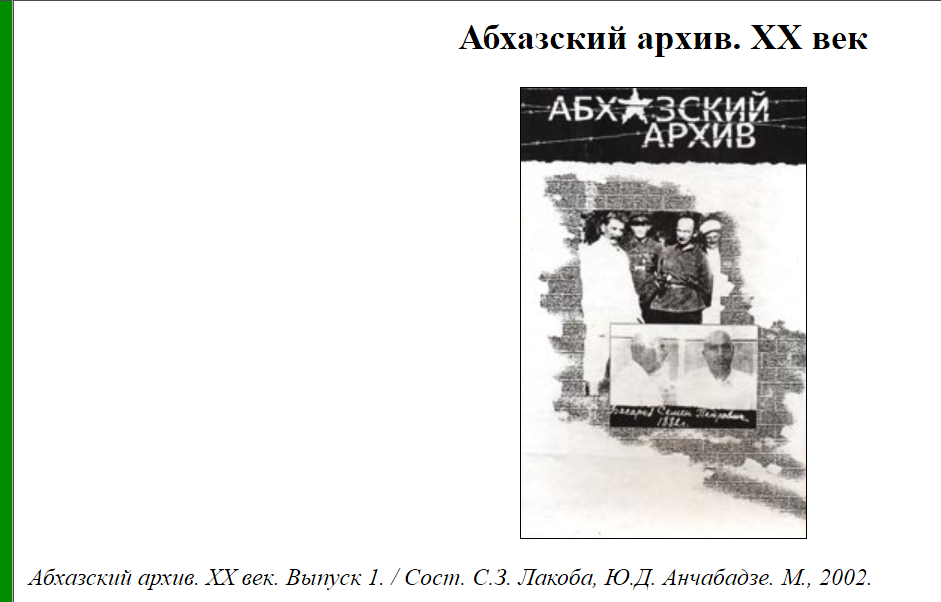
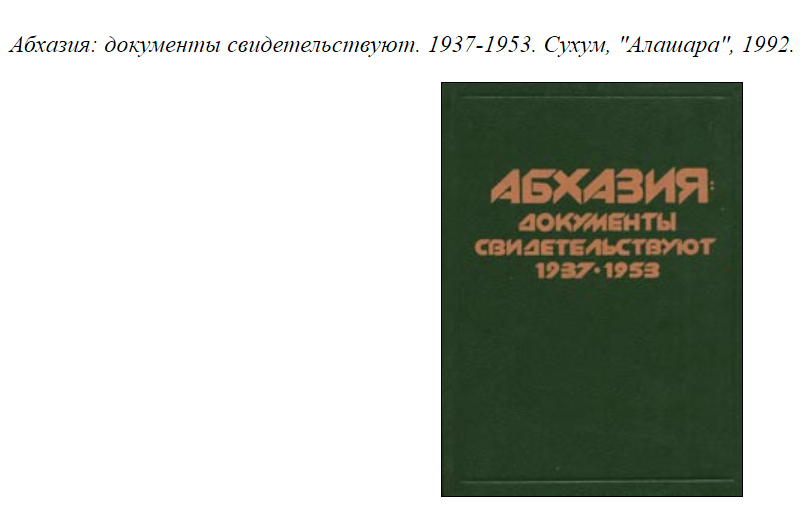
Recently, a book about collections of Abkhaz materials in the State Archive of Russia was published. It covers materials related to the revolutionary period in Abkhazia.
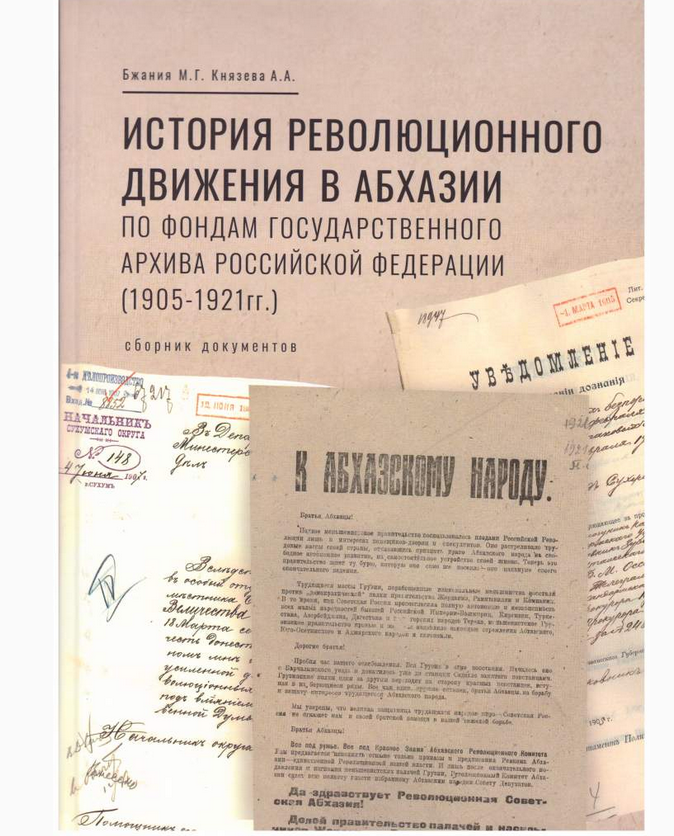
Academy of Sciences
Akademiia Nauk Abkhazii is the center of scientific research in Abkhazia. The idea of its creation was born in 1993 as an attempt to consolidate all scientific institutions of Abkhazia after the 1992-1993 War. However, the first constituent assembly was held only several years later. Main focus of the Academy’s research is humanities, especially extensive study of Abkhaz language, culture and history. The Academy’s website provides access to collections of works by its members (Vestnik ANA) as well as a bibliography of works of its members.
